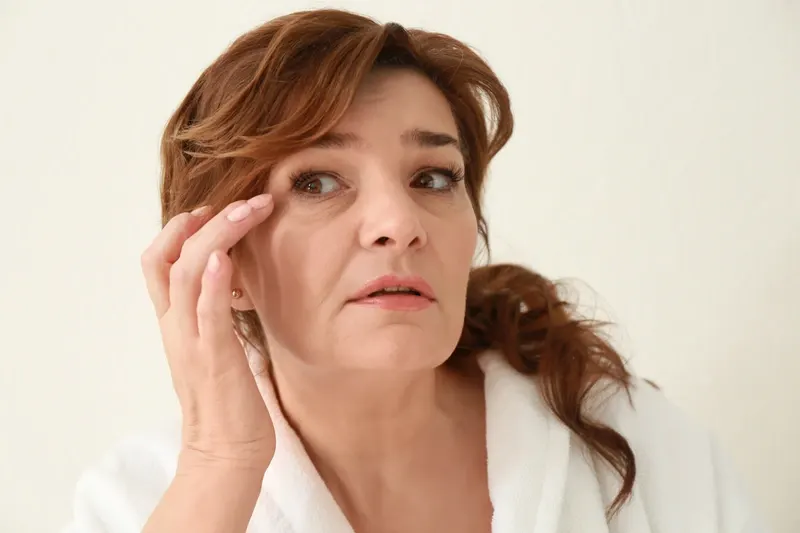Dry, irritated eyes can be an unexpected symptom of menopause, making daily tasks uncomfortable. Hormonal shifts affect tear production, leading to redness, itching, a...
Menopause and Dry Eye: Causes and Treatment Options

Menopause and Tingling: Symptoms, Causes, and Treatments
Tingling or paresthesia—often felt as “pins and needles,” numbness, or crawling sensations—is a common yet overlooked menopause symptom. Caused by hormonal shifts and ...

Menopause & Rosacea: Symptoms, Causes, and Treatments
About 64% of women attending menopause clinics report skin-related symptoms, including rosacea. Given its impact on women’s quality of life and overall health, timely ...

Menopause and Dry Mouth: Symptoms, Causes, and Treatment
Hormonal shifts during menopause can impact saliva production, causing some women to experience dry mouth. Discover the different treatment options available to help r...

Menopause & Constipation: Symptoms, Causes, and Treatments
Hormonal shifts during menopause can slow digestion, leading to bloating and discomfort. Discover why constipation occurs, how it affects daily life, and the proven wa...
